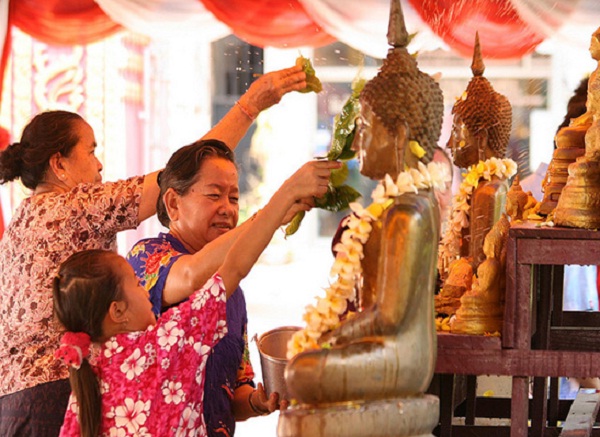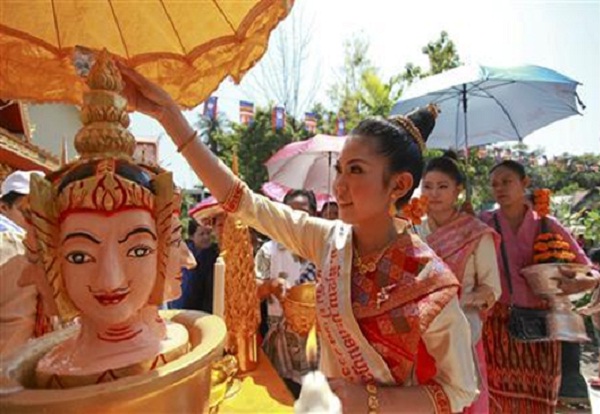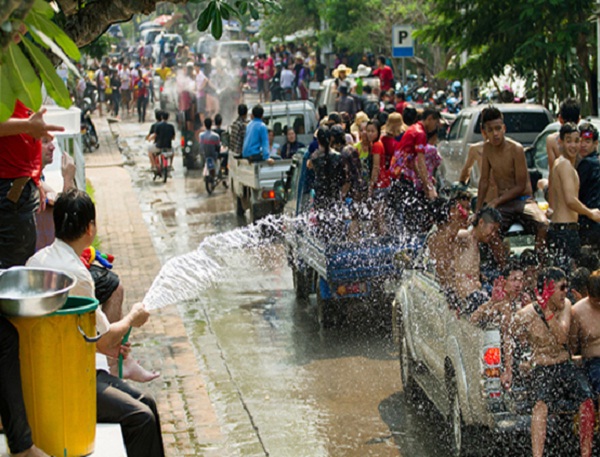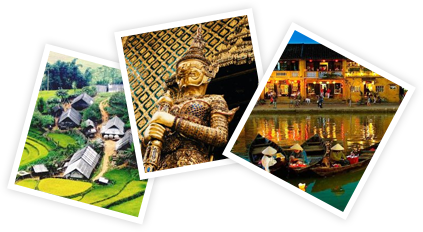Lao New Year is a popular English name for a traditional celebration known in Laos as Pi Mai. It is the most widely celebrated festival in Laos. The festival is also celebrated by the Lao in the United States of America, Canada,France, and Australia.It takes place around 13-15th April, the hottest time of the year in Laos, which is also the start of the monsoonseason, which is why no one really minds being constantly wet from the water being thrown everywhere. Travel Indochina Laos

The first day is the last day of the old year, 13th April is traditionally a day of renewal, the main symbol of which is water. Perfume, water and flowers are prepared for the Lao New Year. Buddha images are taken out of the wats (temples), cleansed with scented water and placed on special temporary easy-to-access places within the wat (temple) compounds so villagers can pour perfumed water on them. On the evening of the final day, the Buddha images are returned to their proper shrines within the wats. Much like a New Year toast in western cultures, this is sometimes followed by a short speech from parents or grandparents. During the speech, elders give their blessing to their family, as well as highlighting important family events such as births, deaths or marriages.

For tourists, most of the highlights of Pimai Lao take place on the second day of festivities (14th April). This is the day between the two years (“the day of no day”) and the biggest water-throwing day, a day of transition that is neither part of the old nor the new year. The elders encourage young people to clean their places and go out to pour water on other elders in the village and wish them well, and finally get wet themselves. This is a way to clean and send bad things away with the old year. Tours in Laos

The last day of the festival marks the start of the new year. This day many families will hold a Baci at their houses to welcome Lao New Year as well as to wish their elders good health and long life.
The atmosphere is very rowdy, but very joyful with children, adults and even the elderly and frail getting involved. Many of the younger generation take this opportunity to loosen themselves from the constrains of conservative Lao culture, a sort of Lao-style “spring-break” with “outrageous” behaviour such as young women wearing shoulder-bearing vest tops and skimpy shorts, or dancing suggestively.
Pi Mai Lao is the liveliest holiday of the year and one that everyone looks forward to, as it is a time when many people visit their families all over the country.
Travel lovers
Read more:








